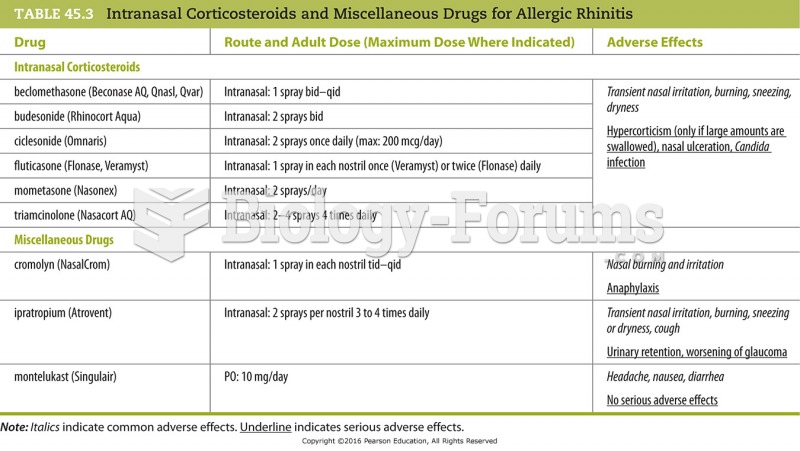|
|
|
Did you know?
Limit intake of red meat and dairy products made with whole milk. Choose skim milk, low-fat or fat-free dairy products. Limit fried food. Use healthy oils when cooking.
Did you know?
Throughout history, plants containing cardiac steroids have been used as heart drugs and as poisons (e.g., in arrows used in combat), emetics, and diuretics.
Did you know?
The highest suicide rate in the United States is among people ages 65 years and older. Almost 15% of people in this age group commit suicide every year.
Did you know?
People about to have surgery must tell their health care providers about all supplements they take.
Did you know?
About 100 new prescription or over-the-counter drugs come into the U.S. market every year.
 Cerebral aneurysm. A cerebral aneurysm is the abnormal dilation of arteries supplying the brain, whi
Cerebral aneurysm. A cerebral aneurysm is the abnormal dilation of arteries supplying the brain, whi
 A resonance tube, called a Helmholtz resonator, is used on the intake duct between the air filter ...
A resonance tube, called a Helmholtz resonator, is used on the intake duct between the air filter ...





